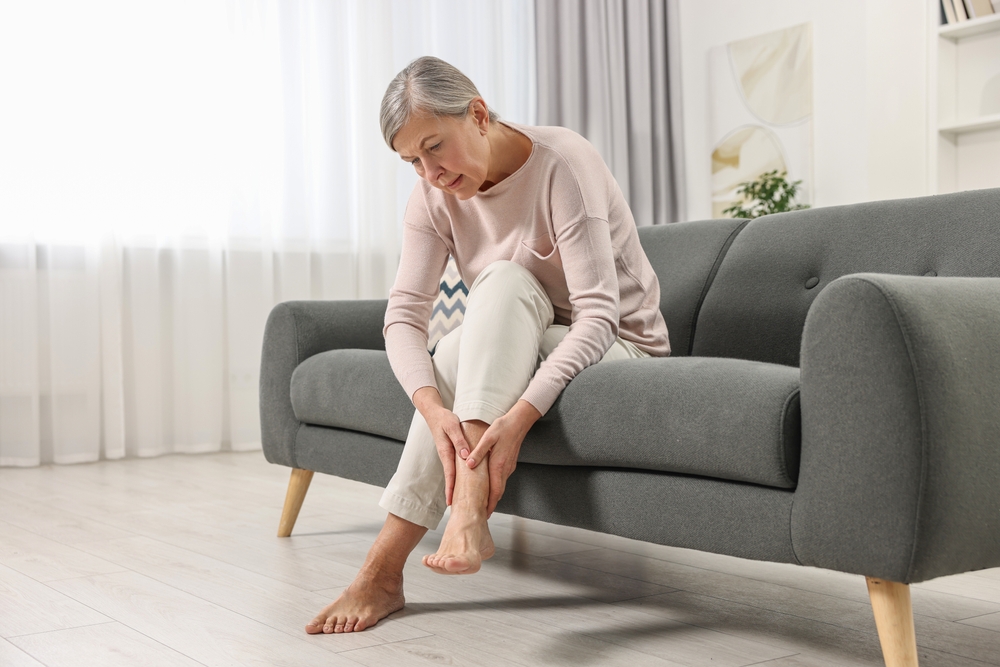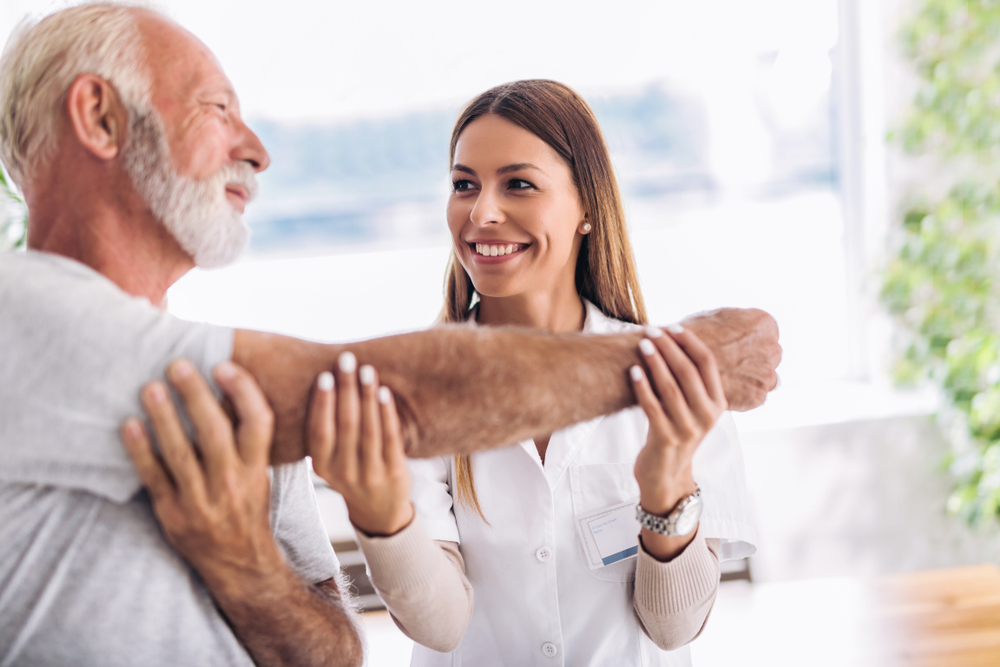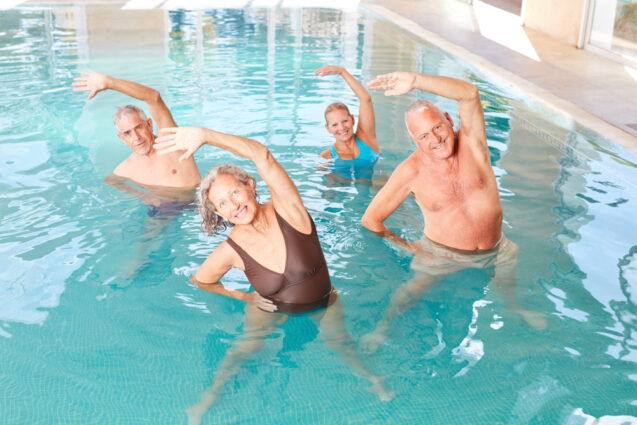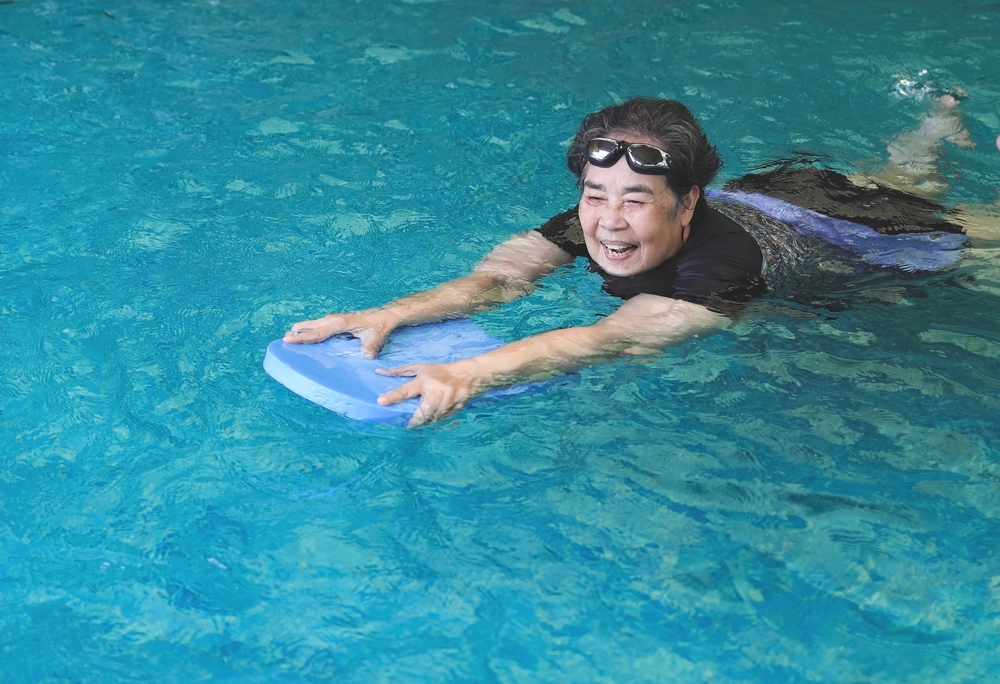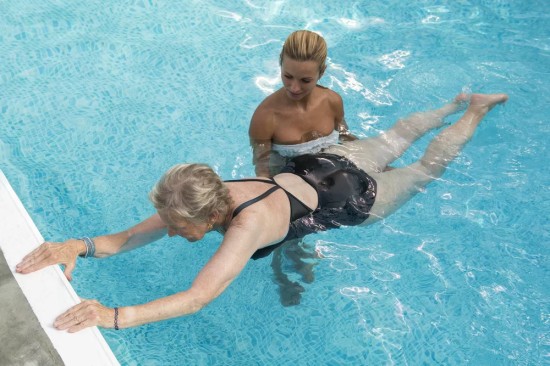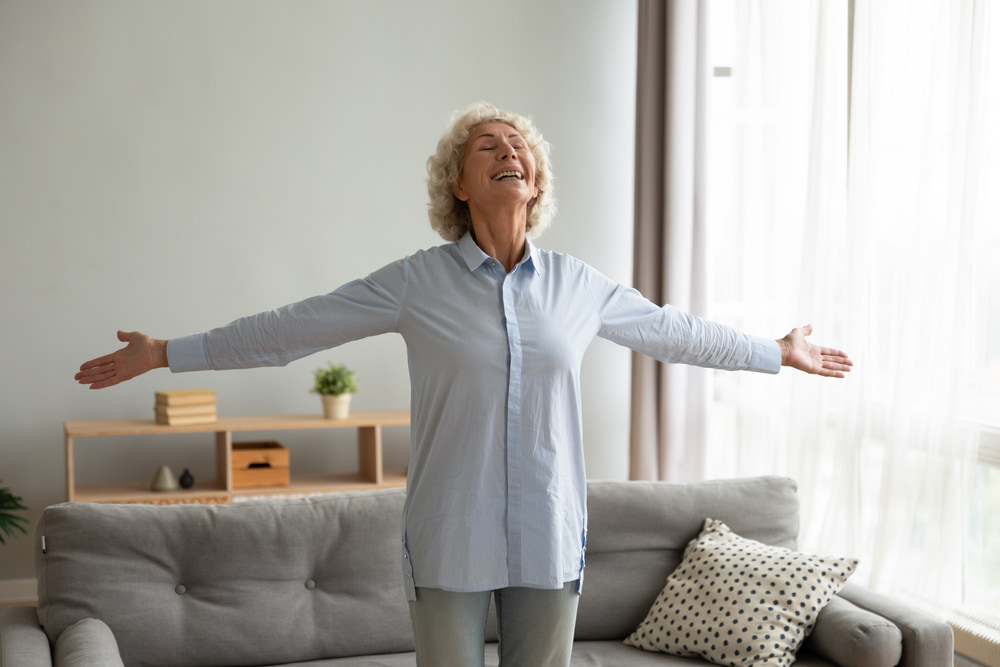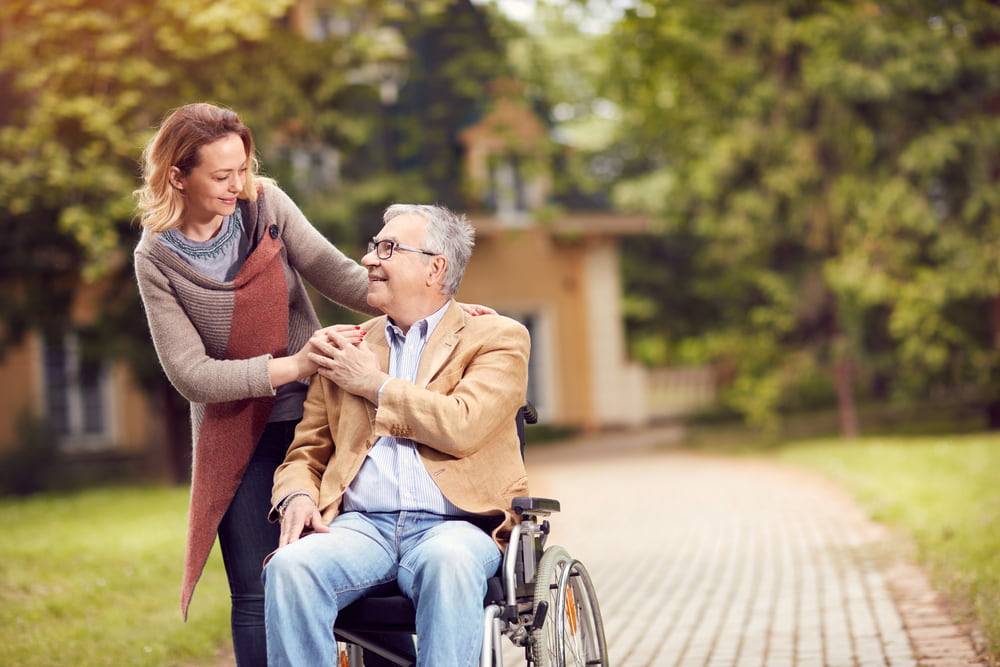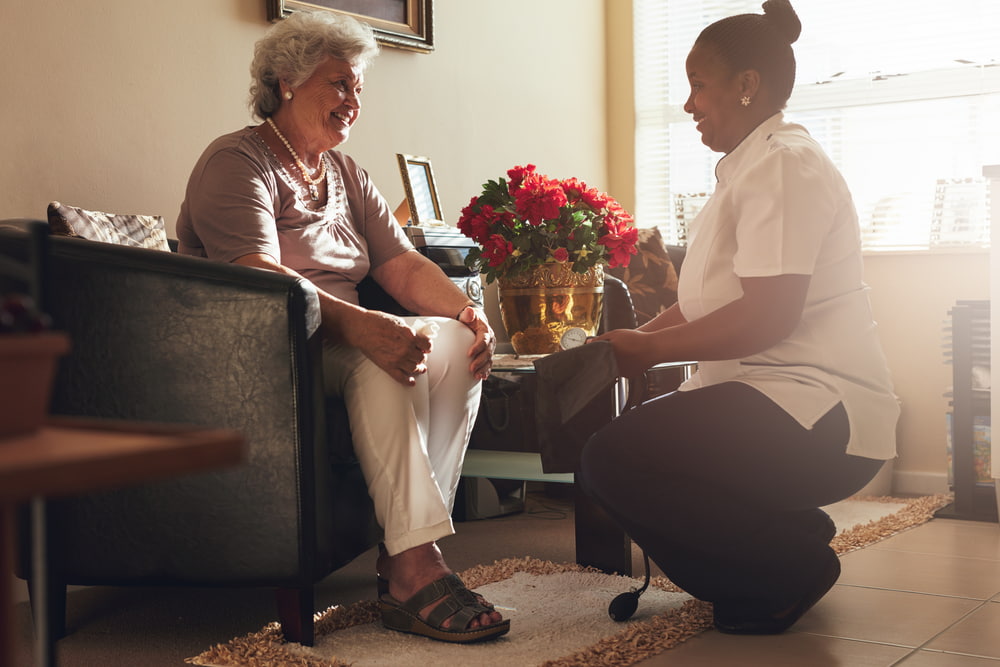Chronic pain, defined as pain lasting longer than 12 weeks, is a significant concern for many seniors. It can impact mobility, sleep, mood, and overall quality of life. While it’s a common issue, it’s not an inevitable part of aging, especially if you rely on professional home care in Los Angeles for help. Understanding the causes and exploring various management strategies can empower seniors to find relief and regain control of their lives.
What is the most common cause of chronic pain in older adults?
Arthritis, a condition characterized by inflammation and wear-and-tear of the joints, is the leading cause of chronic pain in seniors. Osteoarthritis, the most common type, typically affects weight-bearing joints like the knees, hips, and spine. However, other conditions like fibromyalgia, neuropathy (nerve damage), and back problems also contribute significantly to chronic pain in the elderly population.
How to manage chronic pain in the elderly?
Managing chronic pain in seniors requires a multi-faceted approach that addresses both the physical and emotional aspects of the condition. Here are some key strategies:
- Medical evaluation and treatment: It’s crucial for seniors experiencing chronic pain to consult with their doctor to determine the underlying cause and discuss appropriate treatment options. This may include medications, physical therapy, or other interventions.
- Physical activity and exercise: While it might seem counterintuitive, staying active can be a powerful tool for managing chronic pain. Low-impact exercises like walking, swimming, or tai chi can improve strength, flexibility, and range of motion, which can alleviate pain and stiffness.
- Physical therapy: A physical therapist can design a personalized exercise program to address specific pain areas and improve mobility. They can also teach techniques for managing pain, such as stretching and relaxation exercises.
- Hot and cold therapy: Applying heat (e.g., warm baths, heating pads) can relax muscles and improve blood flow, while cold therapy (e.g., ice packs) can reduce inflammation and numb pain.
- Mind-body techniques: Practices like yoga, meditation, and deep breathing exercises can help manage pain by reducing stress, promoting relaxation, and improving coping mechanisms.
- Alternative therapies: Some seniors find relief through complementary therapies like acupuncture, massage therapy, or chiropractic care.
- Emotional support: Chronic pain can take a toll on mental health, so seeking emotional support through counseling or support groups can be beneficial.
It’s important to note that pain management is highly individual, and what works for one person may not work for another. It often involves a combination of approaches and ongoing adjustments based on individual needs and responses.
If they work closely with healthcare providers and explore various strategies, seniors can find effective ways to manage chronic pain, improve their quality of life, and rediscover the joy of movement and activity. They can even become encouraged to try out different interesting activities like music therapy or relaxing aqua therapy, which could remind them how valuable lifelong learning and new experiences are.
How can I find dependable home care in Los Angeles and the surrounding area?
If chronic pain is making daily tasks a challenge for you or a loved one, remember that you don’t have to navigate this journey alone. At A Better Way In Home Care, we understand the unique needs of seniors facing chronic pain. Our compassionate team specializes in connecting seniors with experienced caregivers who can provide personalized support and assistance in the comfort of their own homes.
Whether it’s help with daily activities, transportation to medical appointments, or simply a comforting presence, the caregivers in our database are dedicated to improving the quality of life for seniors with chronic pain. Let us help you find the right caregiver to meet your or your elderly loved one’s specific needs and preferences.
Whether you live close to the Griffith Observatory or in the center of Los Angeles, we’re here to help. Contact us today to learn more about our services and how we can support you on your path to pain relief and well-being.
More
As we age, our bodies undergo natural changes that can sometimes make traditional forms of exercise less accessible or even painful. Joint stiffness, arthritis, and balance concerns – these challenges can make staying active feel like an uphill battle. However, the importance of maintaining physical fitness and overall well-being doesn’t diminish with time.
If you’re in Los Angeles, you or your aging loved one might already be using professional home care, which might include exercise. This is where aqua therapy steps in, offering a refreshing and effective solution for seniors who want to stay active, healthy, and happy.
Is hydrotherapy good for the elderly?
Hydrotherapy, also known as aquatic therapy or pool therapy, is a form of exercise that takes place in a warm-water pool. This unique environment offers a multitude of benefits that are particularly well-suited for seniors:
- Reduced joint stress: The buoyancy of water significantly reduces the impact on joints, making movement easier and less painful. This is a game-changer for seniors dealing with arthritis, osteoporosis, or other joint conditions.
- Enhanced strength and mobility: While water provides gentle support, it also offers resistance that can help build muscle strength and improve flexibility. Simple exercises like walking, arm circles, and leg lifts become effective strength-training tools in the water.
- Improved balance and coordination: The aquatic environment challenges the body to maintain balance, leading to improved stability and coordination. This can be particularly beneficial for seniors who are at risk of falls.
- Cardiovascular fitness: Aqua therapy provides a safe and effective way to get the heart pumping and improve cardiovascular health. The water’s resistance naturally elevates the heart rate, promoting circulation and strengthening the heart and lungs.
- Pain relief and relaxation: The warmth of the water soothes muscles and joints, reducing pain and stiffness. At the same time, gentle movements and buoyancy promote relaxation, which can be especially helpful for seniors with chronic pain conditions like fibromyalgia.
What is pool therapy for geriatric patients?
Pool therapy for geriatric patients, or aqua therapy tailored specifically for seniors, involves a variety of exercises and activities designed to address the unique needs and challenges of aging bodies. These programs are often led by trained therapists who understand the specific needs of older adults.
Here are some examples of exercises commonly included in geriatric pool therapy:
- Water walking: Walking in water provides a low-impact cardiovascular workout that strengthens the legs and core muscles.
- Arm exercises: Bicep curls, tricep extensions, and other arm movements using water resistance help build upper body strength.
- Leg exercises: Leg lifts, knee extensions, and water jogging improve lower body strength and flexibility.
- Balance exercises: Activities like standing on one leg or walking on a floating mat challenge balance and coordination.
- Stretching: Gentle stretches in the water improve flexibility and range of motion.
Pool therapy programs often incorporate fun and social elements, such as water aerobics classes or games, to make exercise enjoyable and engaging for seniors. This can encourage them to keep learning new things regardless of their age. They might get interested in more helpful activities such as music therapy.
Where in Los Angeles and the surrounding area can I find reliable home care?
At A Better Way In Home Care, we believe that aging in place should be a comfortable and fulfilling experience. We connect you with compassionate caregivers who are dedicated to providing personalized assistance that enhances the lives of seniors. Whether it’s assistance with daily activities, companionship, or transportation to appointments, the caregiver we match you with is here to support you every step of the way.
We understand that every individual is unique, which is why our care plans are tailored to your specific needs and preferences. Our caregivers are not only experienced and skilled but also genuinely caring individuals who are passionate about making a positive difference in the lives of seniors. From Angels Flight to the rest of Los Angeles, we cover the entire area.
Let us help you create a comfortable and joyful environment where you or your aging loved one can thrive. Contact us today to learn more about what we can do for you and your family!
More
Most people would like to imagine themselves living an independent and relatively worry-free life as they age. As you can imagine, this is largely dependent on how you organized your life, how well you earned before retiring, your general health, and a variety of other factors. Nevertheless, you can put your faith in reputable in-home caregivers to step into your shoes and help you out in times of need.
Regardless of how you accommodate your elderly, the question remains: how can you help them overcome their feelings of weakness and frailty? Read on to learn how to help the elderly feel empowered.
What does empowerment mean for the elderly?
Living life as an elderly person can be difficult. You may feel like you can’t do the things you used to. It can be difficult for the elderly to feel self-sufficient when they often find themselves in a position of dependence.
Relying on others can greatly help if they are worried about their safety. However, to a certain degree, they can feel as if they’re robbed of their dignity. What is a true example of empowering someone in need of help? And why is encouragement so important for elderly people?
What is an example of empowerment?
Empowered aging means having the ability to take care of oneself, make independent decisions, and maintain control over one’s life without relying on others. At a younger age, the example of empowerment is: getting a job, being able to drive, or learning to cook. For certain disenfranchised groups, empowerment has even more meanings.
Empowering seniors is vital to their recovery, and it may be as simple as:
- Treating them with respect and withholding judgment
- Being consulted before changes are made to their care plan
- Cultivating a relationship where they feel safe to express their feelings and desires
- Being given the opportunity to do things for themselves whenever possible
- Focusing on their strengths and abilities
- Encouraging their participation in decision-making processes
- Respecting their choices about their own lives
Why is empowerment important to the elderly?
Feeling empowered as you age fosters a sense of autonomy, dignity, and self-worth. When seniors feel empowered, they are more likely to take an active role in their own lives, making decisions that affect their daily activities, health, and well-being. This sense of control can significantly enhance their quality of life, as it reduces feelings of helplessness and dependency.
Empowerment also encourages continued engagement in social, physical, and cognitive activities, which are vital for maintaining mental and physical health. By respecting their choices and encouraging independence, caregivers and family members can help elderly individuals live more fulfilling and satisfying lives.
How does empowerment improve seniors’ health?
By promoting their active participation in their own care and lifestyle choices, you can provide seniors with a sense of empowered aging. They will then be more likely to embrace positive behaviors such as regular physical activity, healthy eating, and following their medical regimens. This proactive approach can help them manage chronic conditions more effectively and lower the risk of health complications.
Moreover, empowerment enhances mental health by fostering a positive outlook and reducing stress, anxiety, and depression. Social empowerment, through involvement in community activities and maintaining social connections, further contributes to emotional well-being. Overall, these lead to better physical and mental health, ultimately elevating their overall quality of life.
How does empowerment relate to elderly resilience?
While empowerment is more about taking control and making decisions, resilience is the ability to adapt to change and bounce back from difficult situations. Empowering seniors can help them to feel resilient in the face of difficulties. When they feel like they have a say in what happens to them, they are more likely to be able to cope with changes.
What is empowerment and disempowerment in aged care?
Help for older individuals can be delivered in diverse contexts, potentially impacting their sense of self-reliance, capability, and free-will. In some cases, it may be necessary for safety reasons. However, it is important to consider how this will affect the elderly person’s sense of self.
Aged care that is empowering will seek to promote the independence of the elderly person as much as possible. On the other hand, disempowering aged care takes away choices and decision-making from the elderly person. It can make them feel like they are a burden, and that their opinions don’t matter. Here are a few examples:
1. Ignoring preferences
It’s pretty disheartening for seniors when the people looking after them ignore what they like, whether it’s about what they want to eat, what they want to wear, or when they prefer to sleep. This kind of oversight can make them feel like their choices don’t matter at all.
2. Excessive control
Overly controlling behaviors can prevent them from having a say in their own healthcare, financial choices, or day-to-day schedules. This often means they’re not included in critical discussions, which significantly affects their lives.
3. Infantilization
It’s deeply disrespectful to treat elderly adults as if they were children—speaking to them in a patronizing tone, making choices on their behalf without their consent, or oversimplifying how we speak to them. Such actions can significantly undermine their dignity and self-esteem, making it crucial to interact with them as the capable adults they are.
4. Lack of privacy
Walking into their personal space without warning or discussing their health and private matters in public can undermine their dignity. Everyone deserves their own space and the chance to keep certain things private, no matter their age.
5. Physical restraints
Using physical restraints or sedatives just to make caregiving a bit easier, instead of really getting to the bottom of what the senior needs or why they’re acting a certain way, isn’t the right approach. It overlooks the real issues they might be facing.
How do you empower elders?
People can still feel empowered as they age if they have a sense of independence, good quality of life, and their dignity. Here are some of the best ways for empowering seniors:
- Encourage independence: Support them in performing daily tasks on their own, offering assistance only when necessary. This fosters a sense of autonomy and self-reliance.
- Involve them in decision-making: Include them in decisions that affect their lives, from healthcare choices to daily routines. Respecting their opinions and preferences helps them feel valued and in control.
- Provide education and information: Educate them about their health conditions, treatment options, and available resources. Knowledge empowers them to make informed decisions about their care.
- Promote social connections: Encourage them to stay socially active by participating in community events, joining clubs, or maintaining regular contact with family and friends. Social engagement can boost their emotional well-being and sense of belonging.
- Adapt their environment: Modify their living space to enhance safety and accessibility. Simple changes like installing grab bars, improving lighting, and reducing clutter can help them navigate their home more confidently.
- Encourage physical activity: Promote regular physical activity tailored to their abilities. Exercise can improve their physical health, mood, and overall quality of life.
- Support lifelong learning: Encourage them to pursue hobbies and interests or take up new ones. Engaging in mental and creative activities can keep their minds sharp and provide a sense of accomplishment.
- Respect their privacy and dignity: Treat them with respect and dignity, honoring their need for privacy and personal space. This fosters a sense of self-worth and respect.
- Offer emotional support: Be there to listen and provide emotional support. Acknowledge their feelings and experiences, which can help them feel understood and valued.
- Assist with technology: Help them learn and use technology to stay connected with loved ones, access information, and manage daily tasks. Technology can open up new opportunities for socialization and convenience.
How can empowerment be facilitated when providing support?
There are many ways caregivers can help their elderly client feel supported. Here’s how you can empower an elderly person:
1. Tackle ageism together
Reframing old age is key to entering the process of empowerment. You can do this by challenging the negative attitudes and stereotypes that exist about old age. Instead of viewing it as something negative, you can embrace it as a natural process that can be experienced in a productive and welcoming manner.
2. Acknowledge their expertise
The elderly are often not given enough credit for their years of experience. Acknowledge what they know and ask for their advice. This will help them feel valued and respected.
3. Use empowering language
The way you talk to and about the elderly person can have a big influence on how they feel about themselves. Caregivers who use language that is positive and respectful are more likely to earn their trust and respect and remind them of their self-worth.
4. Promote inclusion
Social isolation is a big problem for the elderly. Caregivers can provide excellent company and help them feel included by promoting social activities and opportunities for connection.
5. Help them stay connected
Technology can be a great way for the elderly to stay connected with the world. Help them to set up social media accounts, video call their friends and family, or find online groups that share their interests. This way, they won’t miss out, and will feel like they have a purposeful life.
6. Encourage self-care
Encouragement is important for the elderly, and this may be especially true when it comes to self-care. Help them to find ways to take care of themselves that work for them. This could include things like exercising more frequently, finding ways to relax, and taking a more health-conscious approach to their dietary habits.
7. Make everyday routines simple
Many everyday tasks can become more difficult as we age. You can help by breaking down tasks into simpler steps, or by helping them to find ways to make their lives easier.
8. Support their hobbies and interests
Helping elderly people to pursue their hobbies and interests is a great way to empower them. This can give them a sense of purpose and help them to feel more connected to the world.
Where in Los Angeles can I hire experienced in-home caregivers?
Here at A Better Way in Home Care, we can match you with some of the most dedicated and trustworthy caregivers in Los Angeles County, including excellent senior care in Beverly Hills and the surrounding areas. It doesn’t matter which part of LA you live in: we can help seniors accomplish a range of household tasks and make your everyday life easier.
In case you’re questioning the value of using a professional referral agency or wondering about payment options for senior care, feel free to reach out. We’ll respond to all your questions and create an extensive care plan, whether it involves continuous care or just sporadic visits to your elderly loved one. We’ll be there to assist them with grooming, light cleaning, medication adherence, doctor’s visits, and other routine activities.
Call us today and we’ll gladly match you with someone!
More
